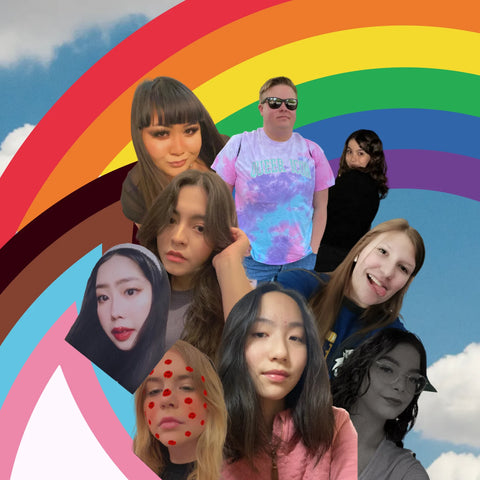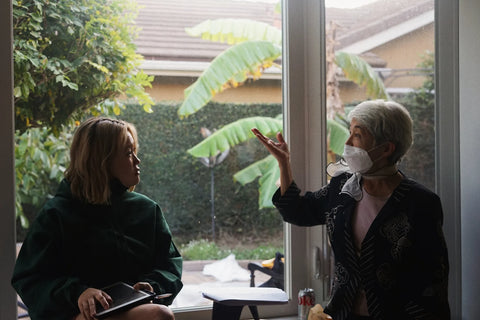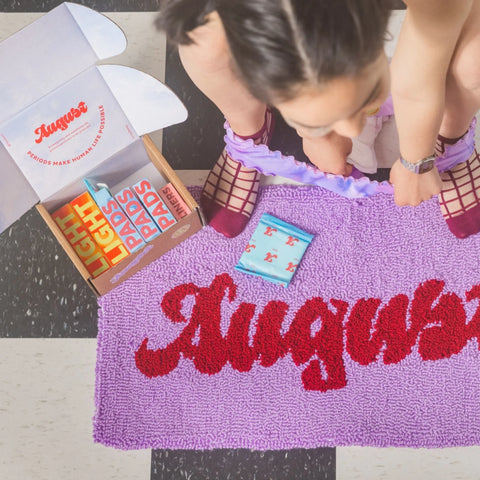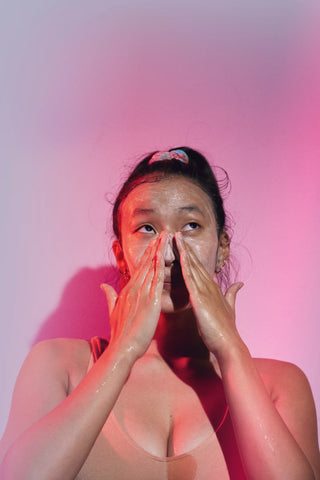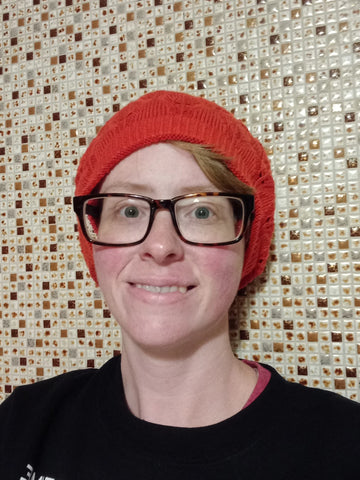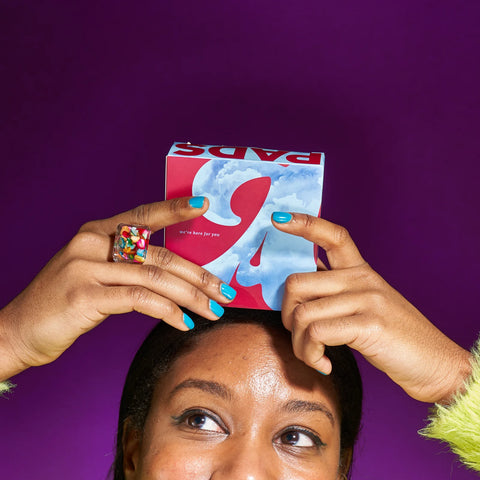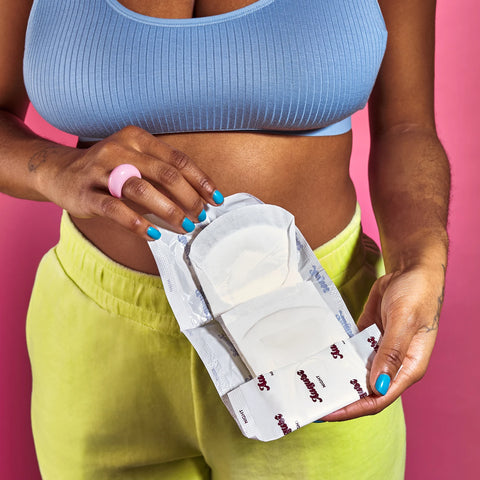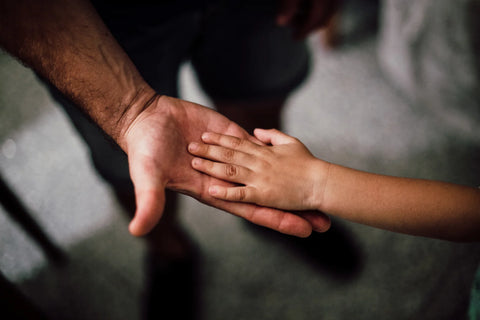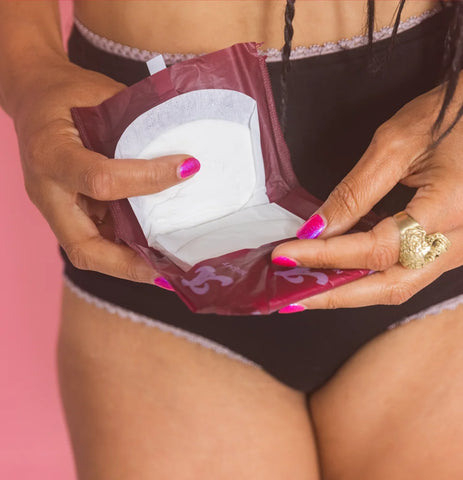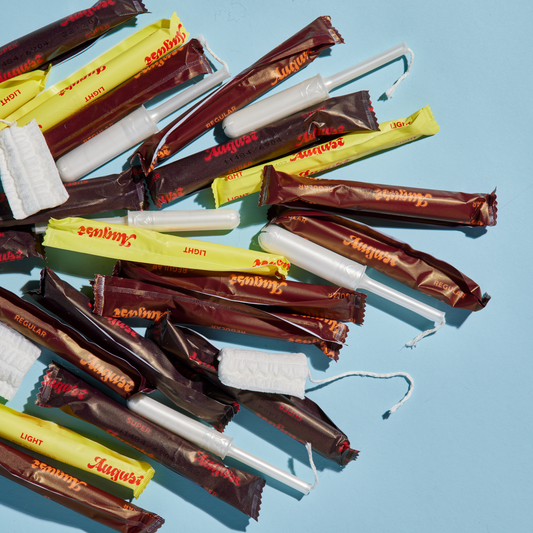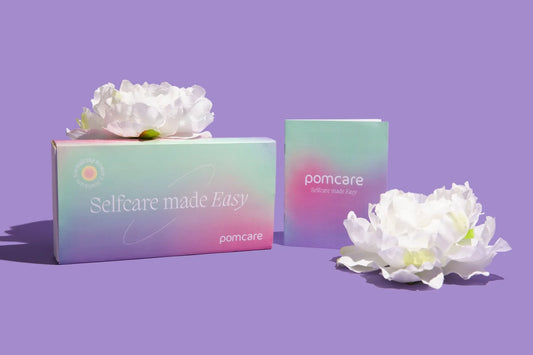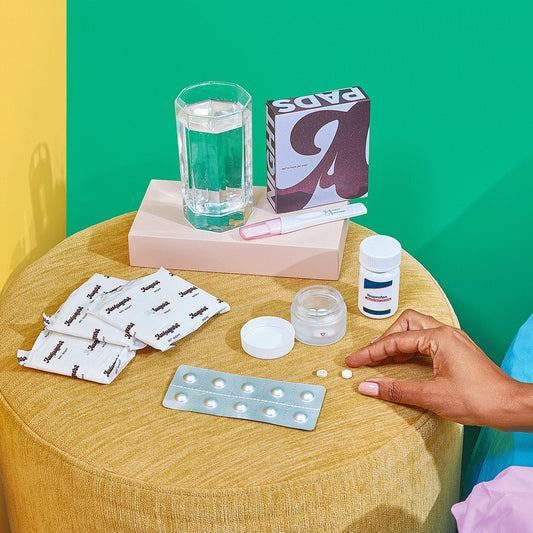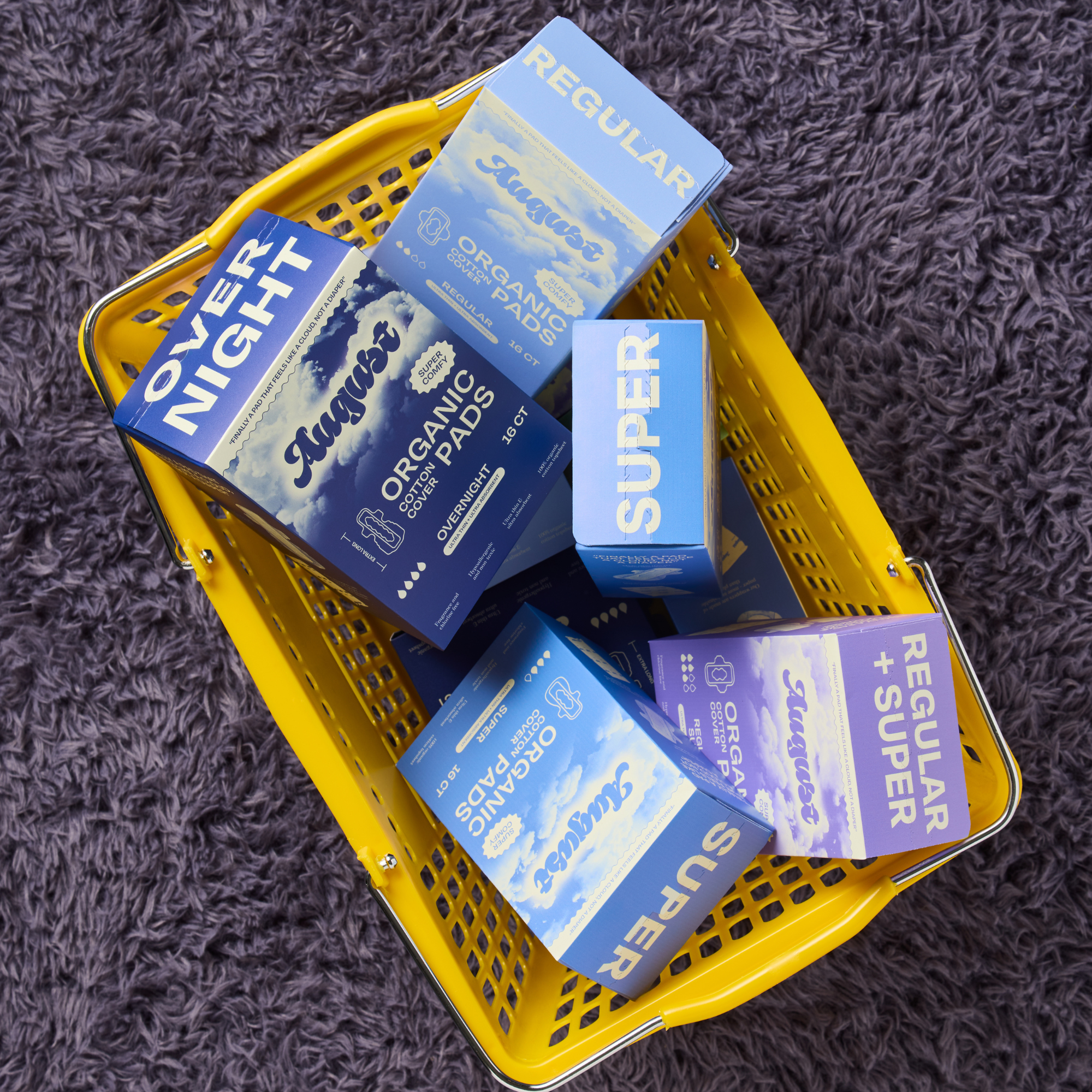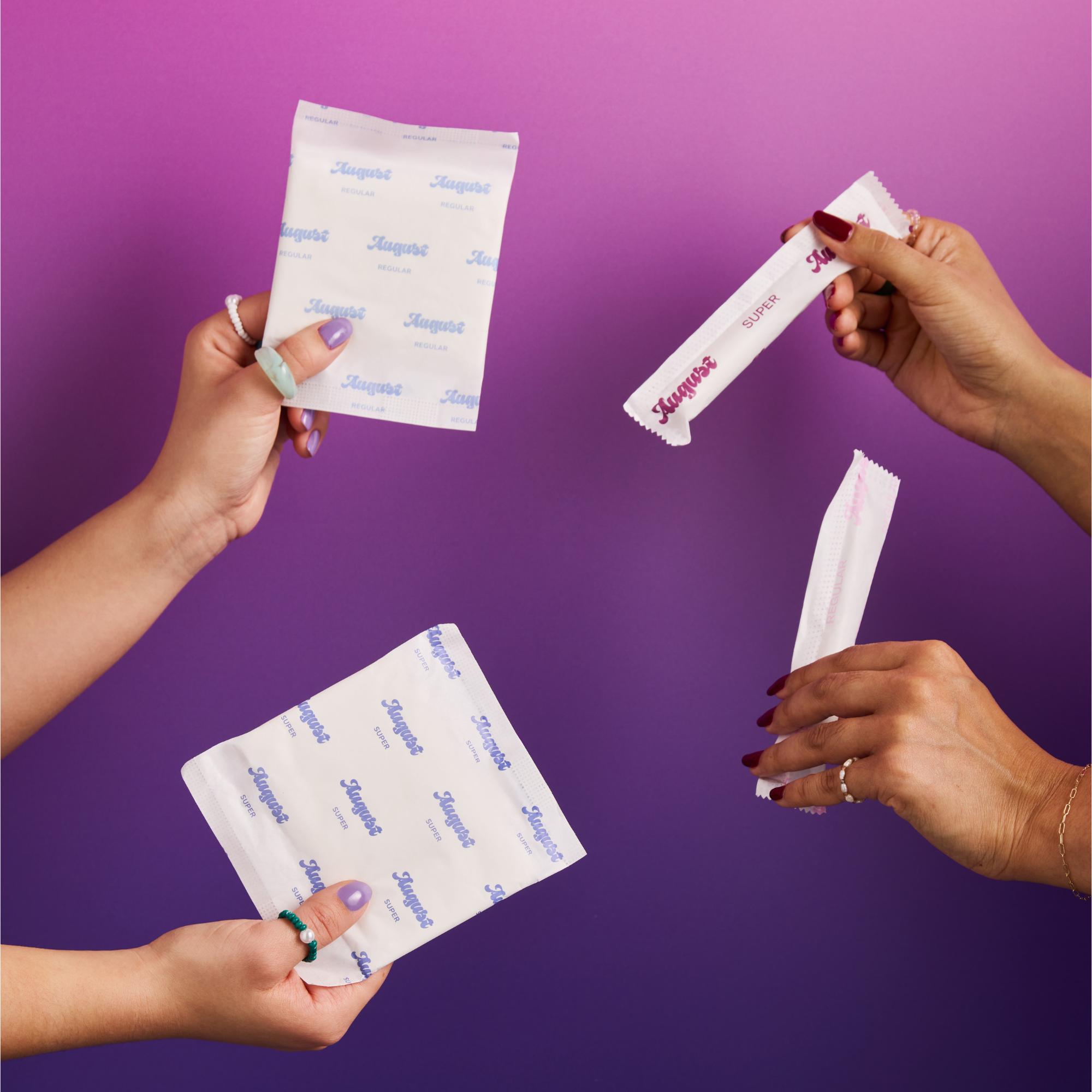This story comes from Heather George, from our very own Inner Cycle
Read about her experience dealing with postpartum depression and mental health, and how they sought help and got support as a new mom.
Mental Health Month
May is Mental Health Month and one of the most challenging, and underreported situations are those who have struggled with postpartum depression.
We are honored to share the PPD experience of Heather George (she/her) from the August Inner Cycle.
Introduction
My name is Heather George (she/her). I am a working mom and am also obtaining my BA online. In my free time I love to visit local bookstores & coffee shops, and catch up on the world around me, looking for different ways to be active in my community and promote equality in every aspect!
When were you pregnant? How was that experience?

I had my daughter in December of 2014, and it was an easy pregnancy for the most part! No terrible pains or side effects, just some crazy cravings & a little extra cramps, also known as contractions. I was a single mom at the time, but never felt alone during my pregnancy, as I was surrounded by my immediate family, and most of them were very supportive.
Describe your postpartum symptoms.
I started noticing PPD symptoms pretty quickly after I had my daughter – I’m talking like the next day!
My daughter and I were in the hospital resting, and she would not stop crying. I immediately felt so exhausted and felt like I had no idea what I was doing – she was my first baby after all. I didn’t know how to calm her down or what she wanted, and I just wanted to sleep. The mental lows came on pretty fast, and it usually included anger, sadness, and SO much anxiety. Really just mood swings galore!
How did PPD affect your daily routine?

Having PPD is really rough – it affected my daily routine to the point where I did not want to get out of bed.
I was experiencing extreme fatigue and when I did rest, it still wouldn’t improve. Frequent headaches (on top of my normal experience with migraines), as well as withdrawing from my friends and family. There were days where I didnt want to leave the house because I felt I needed to rest some more, or figure out ways to take care of my baby girl because she needed all of me. It felt as if it also affected my ability to parent – I wasn’t in my right mind, and I couldn’t be present with my daughter, so I constantly had my mom step in so I could compose myself. There was so much irritability and fear that I wasn’t doing enough.
How long did you deal with PPD and what were some of your strategies to navigate the symptoms?
For me, I remember dealing with PPD for at least the entire first year with my daughter. It was a long road, but having my mom and sisters there to help me was life-changing! I did get a chance to talk with my primary care provider about my symptoms, and also mentioned that while I wanted to try to relive this issue, I didn’t want to take any medication at the time. So, she suggested therapy and relaxation techniques such as breathing, exercise, and so much social support. A reminder that it’s okay to ask for help! I was lucky that my family was more than willing to help me get my life back on track.
As far as you know, does PPD run in your family? Did you know anyone else who had gone through PPD?
To my knowledge, I don’t have any family members that have dealt with PPD.
Did you feel comfortable enough to ask questions and/or share your postpartum depression experience (i.e. to your partner, friends, family, colleagues, etc.)?
I felt SO comfortable with this. I felt like, if I couldn't talk about it, then it would just get worse and I didn’t want to bottle anything up. My friends and family members could all notice a change within me after I had my daughter. The fact that they recognized the signs and spoke up to help really made things easier.
Did you sense any sort of social stigma or shame surrounding PPD conversations?

There were times when I was in public and I had moments that felt like I wasn’t in control. I had anxiety when trying to deal with my anger and irritability in front of others. I felt like a weird bug that no one wanted around because of all the stares. After some time, I came to the conclusion (with the help from my friends, family, and therapist) that PPD is normal (and very common), and that there is no shame in what I was feeling.
Does having gone through PPD ever make you feel nervous to have other children?
This has absolutely crossed my mind when having thoughts about having other children! There have been times when I would think to myself (and my partner), “will it happen again?”. I have done quite a bit of research on the topic and have luckily found that having a baby after PPD is easier the second time around. The chances of recovery are high after your first experience, and it is also nice to know that I have continued to surround myself with people that are very caring and understanding, and extremely supportive.
How do you now approach mental health since managing postpartum mental health?

Having PPD was a scary adventure, and my experience with it has since made me more proactive with understanding mental health as a whole. Everyone may experience it differently, and being able to recognize the signs and calls for help is important. Before PPD, it was very easy for me to get through a day where I felt down and out, but after PPD, I realized that it can be difficult, especially while also taking care of a baby. Knowing how to prioritize does wonders – knowing that I must take care of myself before others. Ensuring the happiness of your children is important, but you must start with yourself first.
Do you have any wisdom or advice to lend to other parents who may be anxious about PPD, and pregnancy in general?
Your feelings are so valid! Sometimes mental health can be really confusing to deal with, but know that you’re not alone. Learn how to make time for yourself and also set realistic expectations – you are in the process of recovering, and there is no set timeline for this. It may be a week, or it may be a whole year. Do not pressure yourself into doing everything at once – do what you can and leave the rest for another time!
Also, for anyone who knows someone dealing with postpartum depression, there are many ways that you can help as well. Do not make it about the baby, make it about the parent – really understand how they are feeling and be prepared to listen. Make a safe space for them. Offer as much help as you have the capacity for. From providing transportation to doctor appointments, to helping around the house, or even just cooking something for them – all of this can go a long way!
Postpartum support can come in many forms, so do your research, and look outward for any support you can.
Thanks again to Heather from the August Inner Cycle for sharing her story! If you have a reproductive health story that you’d like to share, join the conversation here or DM us on Instagram.

